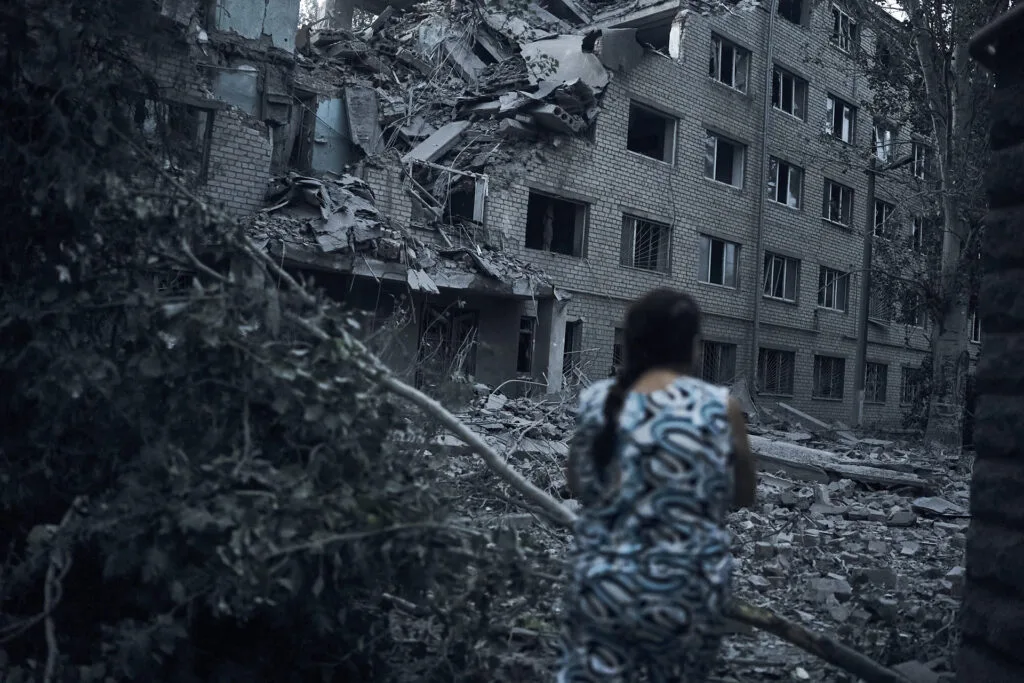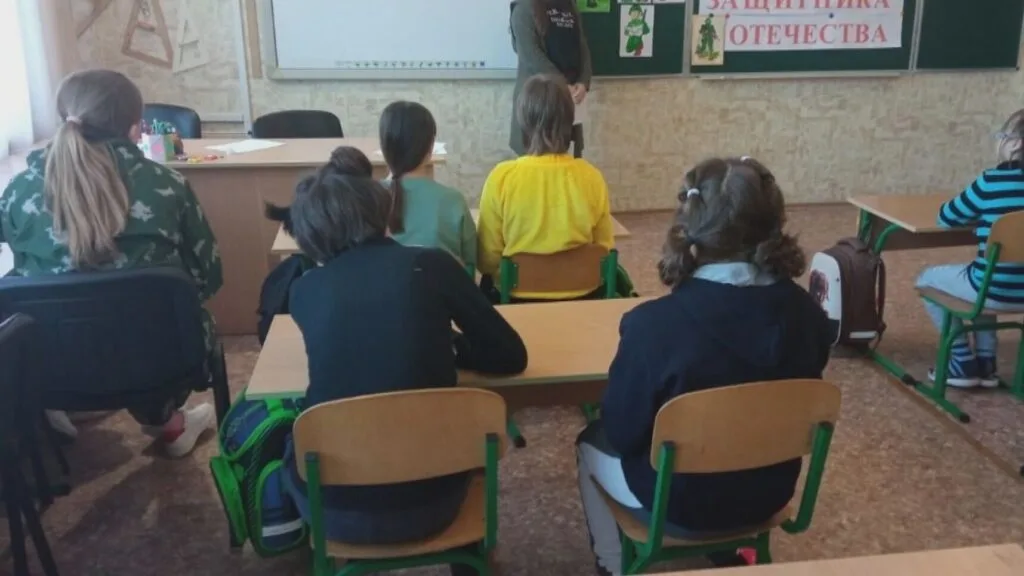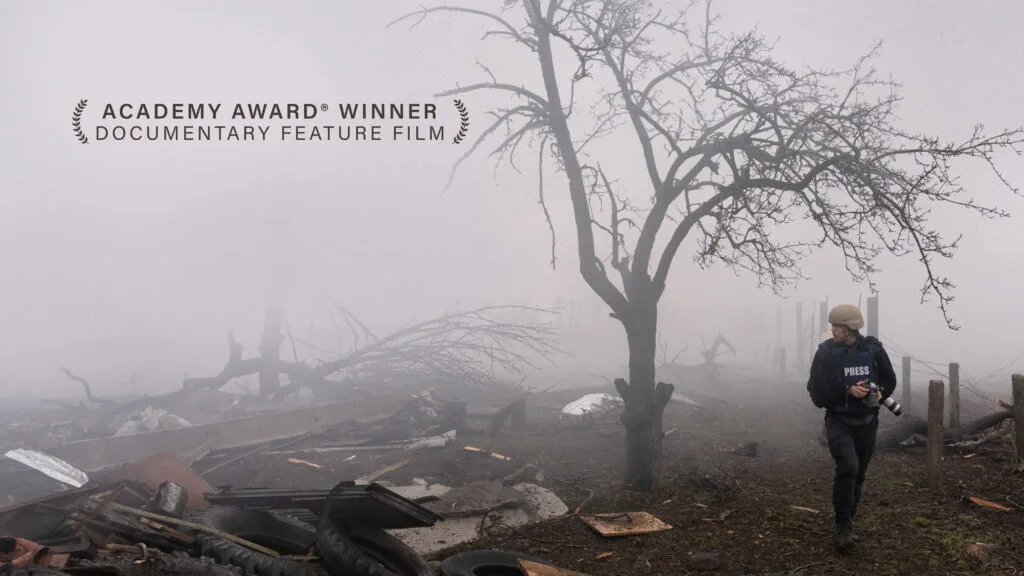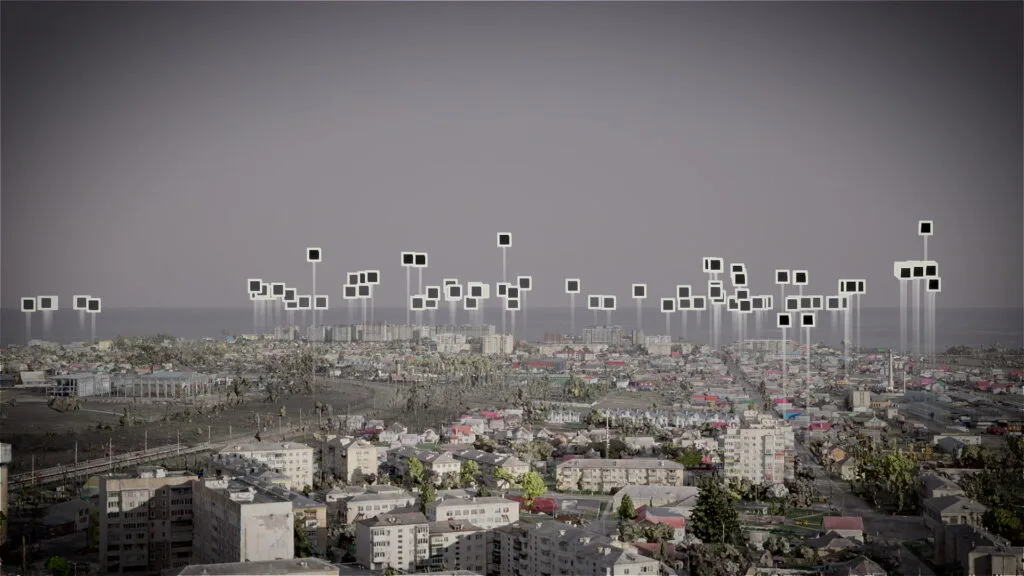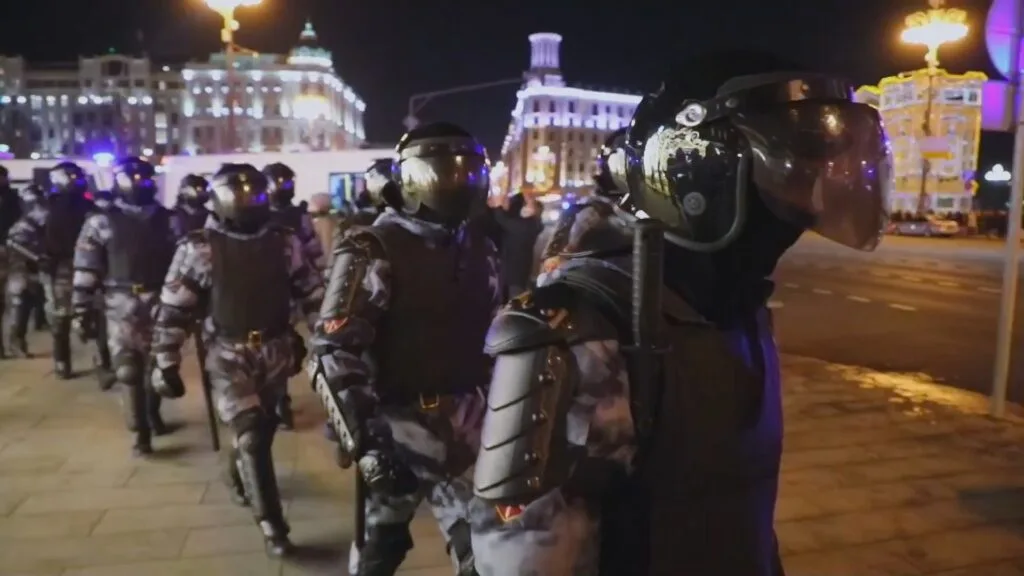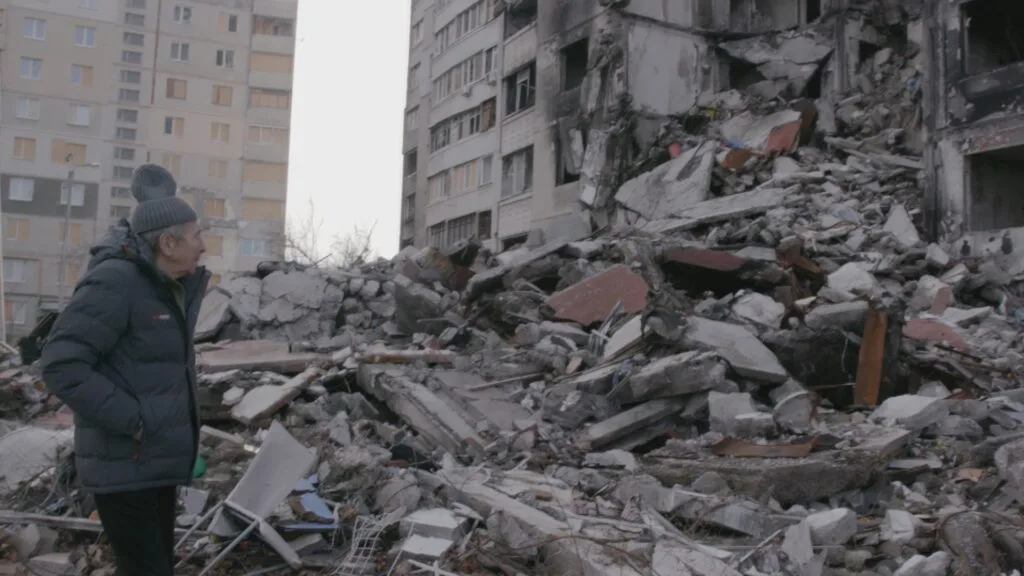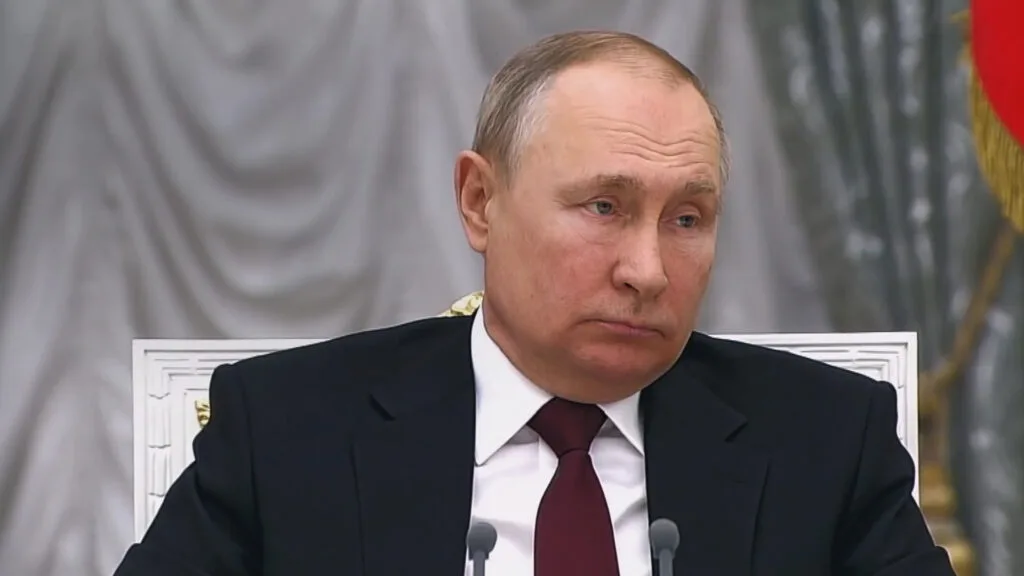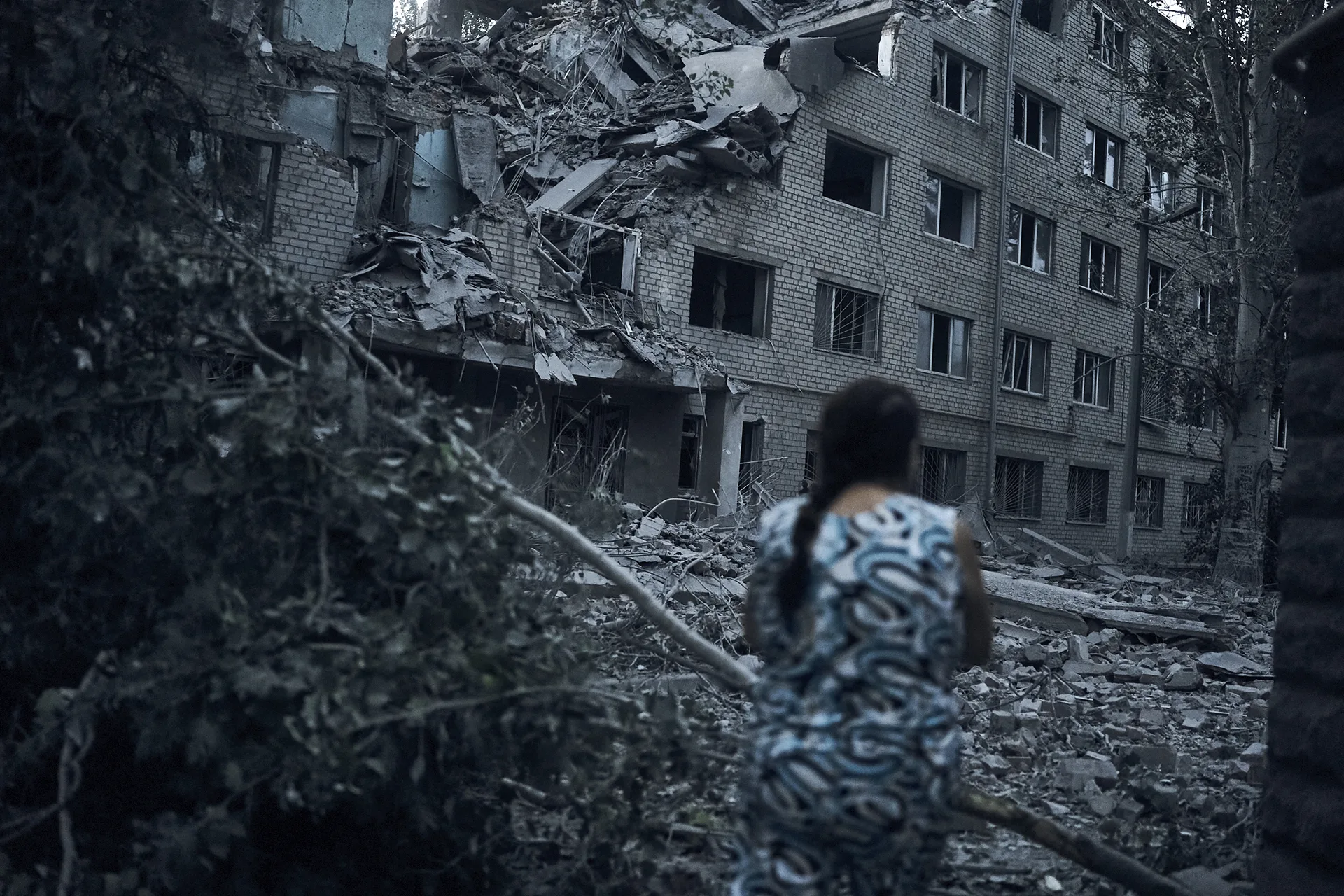Kherson After Liberation: Co-producer of ‘Putin’s Attack on Ukraine’ Documentary Describes Visit
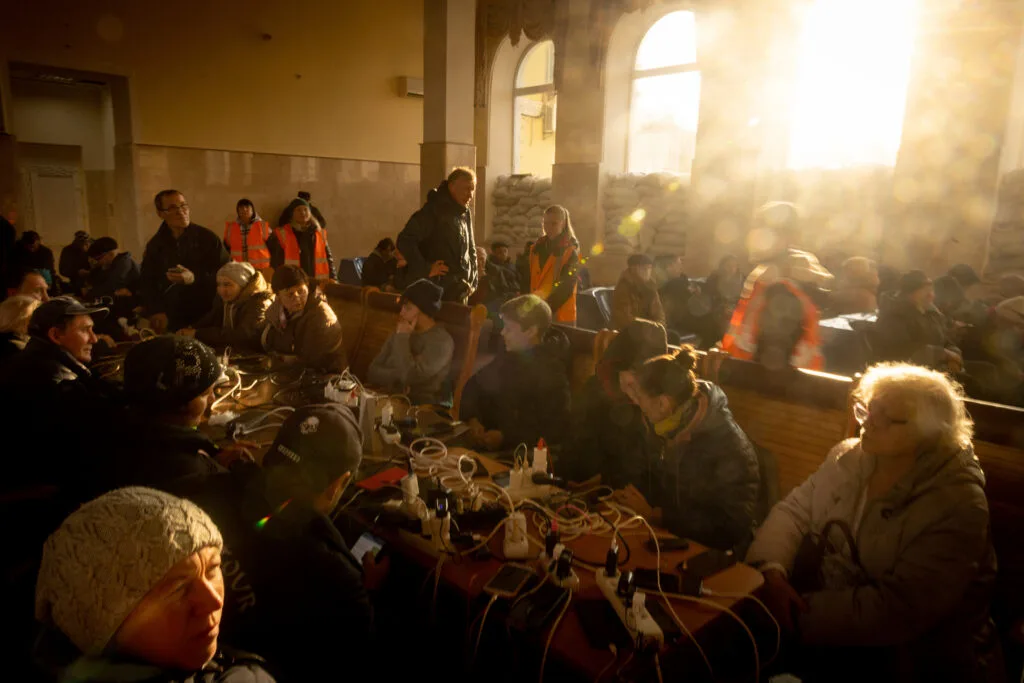
November 29, 2022
Share
After an eight-month occupation, the Russian military announced on Nov. 11 that it had completed its withdrawal from the Ukrainian city of Kherson. The city continues to come under attack from Russian shelling.
Taras Lazer, a filmmaker and journalist, was on one of the first passenger trains traveling to the newly liberated city from Ukraine’s capital Kyiv the weekend of Nov. 18. Lazer was one of the co-producers of the recent FRONTLINE/AP documentary Putin’s Attack on Ukraine: Documenting War Crimes, which traced a pattern of atrocities committed by Russian troops with a focus on the Kyiv suburbs, such as Bucha.
Lazer is originally from the Kherson region and spoke with FRONTLINE about the damage he saw in and around the city and what residents told him about the occupation.
This interview has been edited for length and clarity.
You were in Kherson on Nov. 19. Can you describe what you saw while you were there — how the residents were feeling after Russian soldiers pulled out, what the atmosphere was like?
From the train, we saw signs of Russian presence everywhere. I saw a lot of their defense lines, trenches, from the smallest trenches for one person to very large positions for the tanks or artillery or MLRS (Multiple Launch Rocket System) things.
When we came to Kherson, people were … euphoric. I was euphoric, crying and happy to see my town, to see people waving with flags, hugging their relatives, friends. …
The railway station in Kherson was basically one of — maybe the only — place in town where you can use the electricity. So inside the railway station there were many people just charging their phones and using the internet. That was the first thing I saw and that was kind of the start of reality hitting me: People with no water, no supplies and basically one place to charge their phones and call their close ones. …
I took a car and moved to my little town (Naddniprianske) just next to Kherson, the little town where I grew up, to see what’s going on there. On our way … we heard a lot of explosions in Kherson. That was like a second [hit of] reality for me after the euphoria — that it’s a very dangerous place to be still. I … asked people how it was under occupation because they were under total Russian authority for about eight months. And I started hearing people complaining and telling me that some locals were collaborating with the Russians. …
“After an emotional outburst of happiness, you little by little get to understand that it’s a happy thing strategically, but in reality, there’s still a lot of work, investigations and suffering and damage all over the place.”From the war crimes perspective, I found out that there was one woman who was abducted by the Russians. This woman was from my apartment building where I spent my childhood. Supposedly, she was filming the Russian troops moving just outside our [building]. And somehow Russians found out that she was doing that. But nobody knows if she really was. … She was taken away and is still missing and nobody knows where she is and what’s happened to her.
I tried to get to … my family house, which is 30 kilometers up the Dnipro River in the village called Tiahynka. In this village, we have a little farm of … chickens, geese, fields, grain, stuff like that. And I know that the Russian soldiers were living there on our farm during the occupation. We got to the little farm and it was the next reality check for me. It had been robbed by the Russians.
Read more: ‘Kill Everyone’: Russian Violence in Ukraine Was Strategic
We have a guy named Yurii who works for our family and he stayed there for the entire occupation. His work … was to look around so nobody steals stuff, feed chickens and help us around the farm. There was a soldier that bullied our Yurii all the time, bullied, threatened, beat him. … [Yurii was] taken by the Russians somewhere and got tortured, got thrown into a hole in the ground, beaten. I saw him [trembling], scared all the time, with his eyes constantly almost full of tears because of this immense stress he survived. The hugs that he was giving me, although we have never been close, were very tight as if he hasn’t hugged anyone in years.
It sounds like, from what you described, there was some euphoria, but when you saw the aftermath of the Russian occupation, I think you described it as coming back to reality, seeing the damage that was left behind.
Basically the first feeling about Kherson being liberated, of course, is happiness and euphoria. And it’s not just subjective for me because it’s my hometown, but also a lot of people all over Ukraine were extremely happy about Kherson being liberated.
But when you see the damage, the destruction, the missing neighbors, the torture of people you worked with and the basic human needs that are not being met like water or electricity. And because of the Russians, they cannot be met because they still keep bombing. … So after an emotional outburst of happiness, you little by little get to understand that it’s a happy thing strategically, but in reality, there’s still a lot of work, investigations and suffering and damage all over the place. And the constant threat of being killed by some mortar shell or missile.
Since you mentioned you’re originally from Kherson region, what you saw when you were there — how did that compare to what you remember it being like from before the war?
Before the war, the region was developing quite quickly, quite progressively. To start with the damage, all the roads that were renewed before the war got heavily damaged by the Russian vehicles moving [over and over] on them. When you start to look closer at the buildings, you see that some of them are damaged, destroyed, windows are broken in a lot of places. For example, we had a big, new, beautiful commercial center. It got burned down to the ground.
“People that I met, they were saying they were trying to avoid getting anything from Russians. But when eight months pass, you run out of money, you run out of food, and you have to take something to feed your family, to feed yourself.”Another thing that very much strikes me is actually the fields and their transformation. Being from the family of a farmer, I have nothing but huge respect for the people that work on the land. What the Russians did with these immense, beautiful fields we have, they transformed them into training camps and trenches, turning the fertile ground upside down, mixing it with mines and explosives, making it impossible for farmers to go back and do an amazing job that they’re doing for the planet.
You talked about speaking to people who were living in the region during the Russian occupation. Can you tell me a little bit more about those conversations? What were some of the lasting consequences of the occupation?
… [The Russian forces] were aggressive. They were controlling the phones, they were controlling the cars, they were taking cars from people, just like that. And you couldn’t say no, of course.
But on the other hand, Russians were proposing Russian pensions to people, Russian citizenships. If a person had a Ukrainian passport, they would say that you need to exchange that and you need to take part in the annexation referendum. But mostly people that I met, they were saying they were trying to avoid getting anything from Russians.
Read more: How Russian Soldiers Ran a “Cleansing” Operation in Bucha
But when eight months pass, you run out of money, you run out of food, and you have to take something to feed your family, to feed yourself. So that’s what the politics were there: Ukraine does not exist, Ukrainians do not exist, you need to give your passport away, you need to vote on the referendum, also you need to go to the Russian army once the annexation has happened. You remember … the Russians [have this] mobilization thing so they were also traveling around the villages and towns around the Kherson region trying to recruit or just take people to their army.
What does the withdrawal of the Russian troops from the city mean in the greater context of this war, in your opinion?
I hope and I think it’s a turning point in the war where everyone in the world, including the Russians themselves, finally understand that there is no such thing as an invincible Russian army. They had one unique achievement in this war, the big achievement of taking Kherson, a regional center. That was the only accomplishment they had on a large scale, and they lost it. And I think after this and looking at the map, at the positions the Ukrainians have now, it’s very strategically inconvenient for Russians to continue work on the frontline as it looks like now.
Strategically and tactically it’s a huge, huge win for the Ukrainians. And I suppose strategically, Russians will keep on losing. But tactically, and even operationally, they would try and hit us and hurt us as much as possible, not by hitting the military forces, but by hitting the towns, the civilian infrastructure and my beloved Kherson, which is now under constant attack.
Are officials starting to investigate potential war crimes during the occupation in Kherson?
The work is definitely underway. The police units, the SBU (Security Service of Ukraine) units and prosecutors, from what I know, they are working … on the war crimes investigations and on the collaborators. From what I understand, a large part of land has been taken pretty quickly by our troops. And there is kind of a lack of professionals to cover the entire area of the Kherson region and the number of crimes and they’re moving from village to village, from town to town, gathering information, doing the investigations as much as they can. I also know that the police are very much interested in digging into and investigating the so-called torture rooms the Russians organized in different towns and in Kherson specifically too.
Read more: ‘They Took My Big Love’: Ukraine Woman Searches for Answers
You mentioned there’s no electricity or running water. What does this mean for residents who chose to stay, with winter on the way? Do you know of efforts to fix the electricity and running water?
We have a problem with the electricity, you might know, all over Ukraine now. And still the electricity company workers and electricity companies, they are also working as much as they can, from what I see, to get a little electricity to the [city] of Kherson. I know that there are different convoys of humanitarian aid running towards the [city] of Kherson all the time and even to the villages and smaller towns. I know that there are efforts to renew the electricity system. The Russians, when they were retreating, destroyed major [transmission towers] that connect the region and the town together in one electricity system. If they fixed the electricity, they would be able to fix the water supply as well. But being under constant attacks, that’s quite a task to fulfill.
Winter in Kherson is pretty mild. When I went there from snowy Kyiv, it felt like I went to springtime. So we’re hoping that they don’t suffer that much and the ones that suffer would be able to evacuate, spend the winter elsewhere.
There’s reportedly also a food and medicine shortage in Kherson. Have you heard of any aid efforts to address that specifically?
I have not. People are talking about this desperately because they need [it]. I know that some of the hospitals renewed their activity. They have generators supplied by the government administrations. And as I said, convoys of aid are running for Kherson and I suppose a lot of them are bringing medicines. But still there is a danger that people would not get what they need now.
Do you know if these aid efforts are enough to meet the level of need?
I’m sure it’s not enough for now. And there’s another problem here, which is connected to the territory being mined: Convoys cannot move that easily to Kherson now because there’s still a danger of them going over a mine or getting hit or something like that. Now, hopes [have grown] with the railway being renewed and the train going back and forth that maybe with the trains they would be able to move faster and bigger amounts of supplies needed in Kherson.
Watch Putin’s Attack on Ukraine: Documenting War Crimes below:

Email:
chantelle_lee@wgbh.orgRelated Documentaries
Latest Documentaries
Related Stories
Related Stories
Explore
Policies
Teacher Center
Funding for FRONTLINE is provided through the support of PBS viewers and by the Corporation for Public Broadcasting, with major support from Ford Foundation. Additional funding is provided the Abrams Foundation, Park Foundation, John D. and Catherine T. MacArthur Foundation, Heising-Simons Foundation, and the FRONTLINE Trust, with major support from Jon and Jo Ann Hagler on behalf of the Jon L. Hagler Foundation, and additional support from Koo and Patricia Yuen. FRONTLINE is a registered trademark of WGBH Educational Foundation. Web Site Copyright ©1995-2025 WGBH Educational Foundation. PBS is a 501(c)(3) not-for-profit organization.
